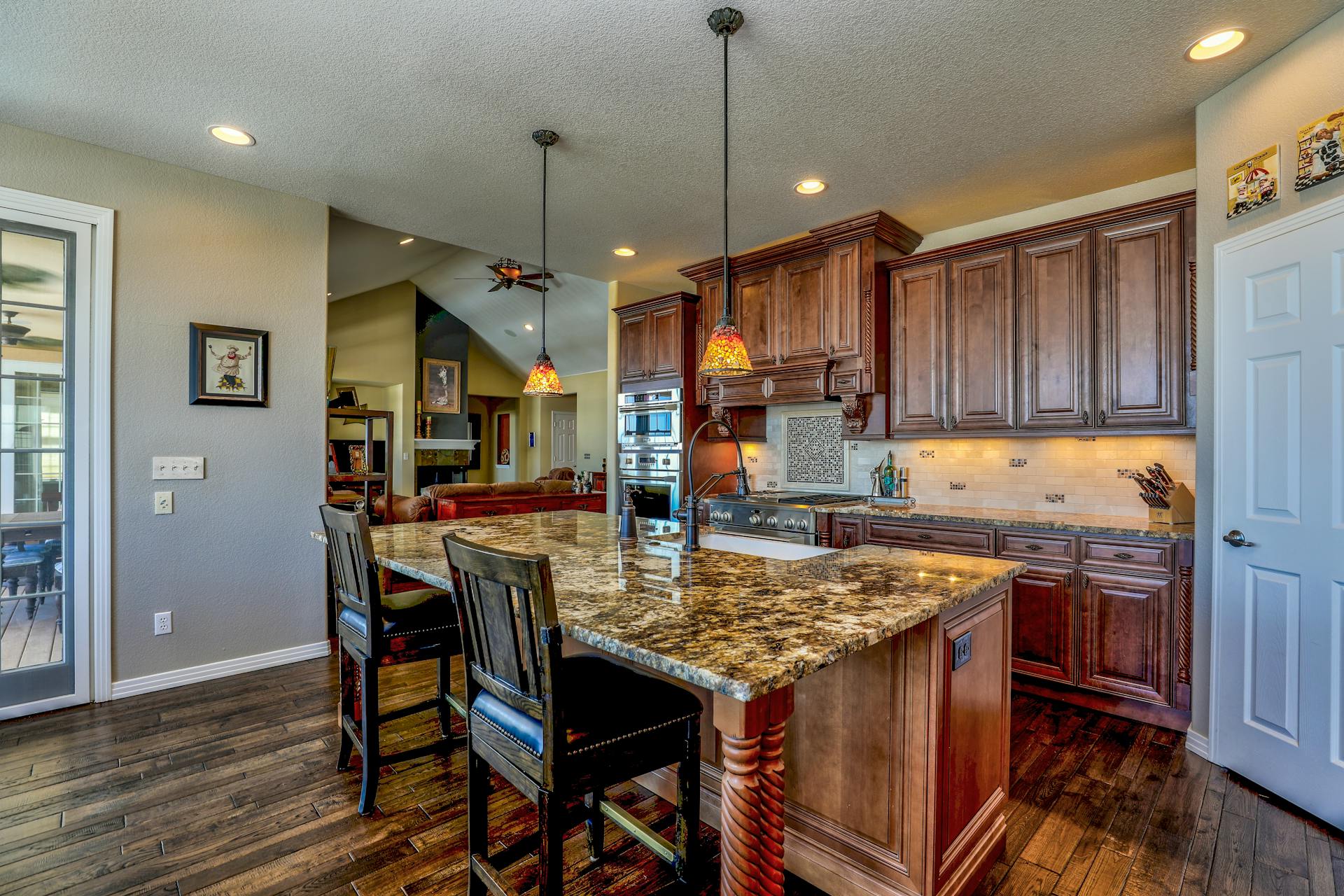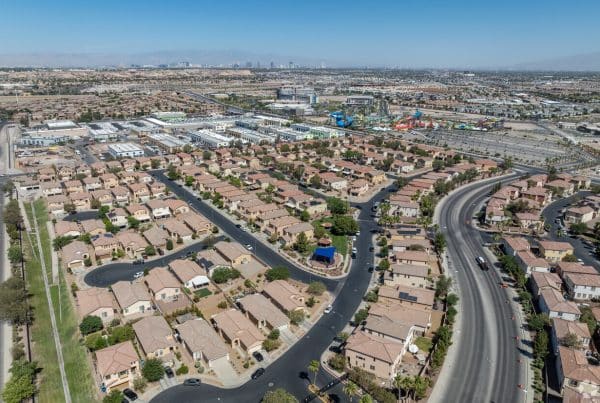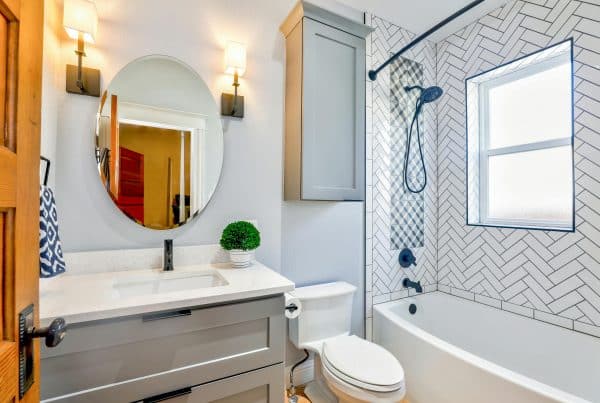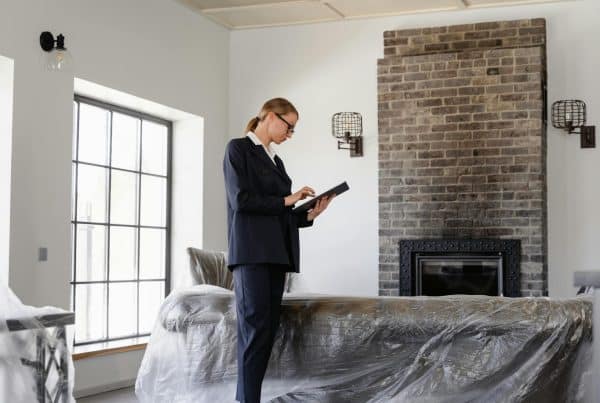Closing costs are an important part of real estate. They account for various expenses, such as title services and loan-related fees. In Las Vegas, Nevada, specifically, these costs can be quite steep. This is not unusual, however.
Closing costs are a standard expense nationwide. For the purpose of this article, it’s important for buyers and sellers in Las Vegas to understand what closing costs are and how much they are.
Let’s start with the basics.
What are closing costs?
Closing costs are the fees that buyers and sellers pay to complete a real estate transaction. These costs cover important things like checking the property’s title, preparing the loan, and making sure everything is properly recorded with the local government.
Who pays closing costs in Las Vegas, Nevada, buyers or sellers?
Answer: Both buyers and sellers pay closing costs. Each party pays for specific expenses, which vary depending on the transaction.
Some closing costs can be negotiated between buyers and sellers. Who pays what can change based on the local housing market and what’s written in the purchase agreement. For instance, when there are a lot of homes for sale on the market (a buyer’s market), sellers might offer to pay some of the buyer’s closing costs to help seal the deal.
What’s included in closing costs for sellers?
A real estate agent will provide you with a Seller’s Net Sheet before listing your home. This document estimates your expected closing costs. The fees shown on the net sheet may vary based on which brokerage and title company you choose to work with.
Here’s a breakdown of the typical closing costs sellers are responsible for:
Realtor’s Commission
The realtor’s commission typically ranges from 5% to 7% of the home’s final sale price. The exact percentage varies depending on the agreement made when signing the listing contract and the policies of the real estate agencies involved.
Transaction Fee or Brokerage Fee
This fee, which typically ranges from $200 to over $1,000, is charged by the brokerage for handling administrative tasks related to the sale. The amount can vary based on factors such as the brokerage’s policies, the complexity of the transaction, and the value of the home. Sellers should review their agreement with the brokerage to understand the specific charges associated with their transaction.
Title Insurance and Escrow Fees
These fees are calculated based on the home’s sale price and are essential for ensuring a smooth transfer of ownership.
Title insurance protects the buyer and lender against potential disputes or claims related to the property’s ownership, while escrow fees cover the services of a neutral third party who manages the funds and paperwork during the transaction.
Mortgage Demand Payoff
This is a statement from your lender detailing the exact amount needed to pay off your remaining mortgage balance. It includes the principal balance, any accrued interest, and potential fees or penalties for early repayment.
The lender provides this document upon request, and the amount must be paid in full at closing to release the lien on the property.
HOA Demand Payoff
When you’re selling a home that belongs to a Homeowners Association (HOA), you’ll need something called an HOA demand payoff. Think of it as a receipt that shows whether you owe any money to the HOA. This could include regular monthly dues, late fees, or fines for breaking HOA rules. The document is crucial because it protects the buyer from getting stuck with unpaid HOA bills.
This document needs to be obtained before the sale can be completed and usually costs between $100 and $500. If you’re in a hurry, you might have to pay an extra rush fee. It’s smart to request this document early in the closing process to avoid any last-minute problems.
Most of the time, the seller pays for this document, but in some states, it becomes the buyer’s responsibility.
HOA Transfer Fee
This fee is charged by the homeowners association (HOA) to transfer ownership records from the seller to the buyer.
It covers administrative tasks such as updating the HOA’s records, providing the buyer with governing documents, and ensuring the buyer is aware of their responsibilities within the community. The amount varies depending on the HOA.
HOA Resale Package
The HOA resale package is a set of documents provided by the homeowners association to the buyer during the sale process. It typically includes the community’s governing documents, financial statements, and rules and regulations.
This package ensures the buyer is fully informed about the HOA’s policies and obligations before completing the purchase. The seller is usually responsible for covering the cost of the resale package.
Sewer and Trash Demand Payoff
This fee ensures that any outstanding balances for sewer and trash services associated with the property are paid in full before the sale is finalized. It includes a statement from the utility provider detailing the amounts due and guarantees the buyer will not inherit unpaid utility bills.
The seller typically pays this fee at closing as part of settling all property-related debts.
Property Taxes
Property taxes are an essential part of the closing process. If the seller has already paid taxes for the upcoming quarter or any future period, they are typically entitled to a prorated credit at closing. This ensures that the seller is reimbursed for the portion of taxes covering the time after the property changes hands.
Conversely, if taxes are due but unpaid, the seller will need to settle the outstanding balance at closing.
Transfer Tax
The transfer tax is a fee paid to the state or local government when a property changes ownership. In Las Vegas, Nevada, the rate is usually $5.10 for every $1,000 of the home’s sale price.
For example, if a home sells for $400,000, the transfer tax would be calculated as 400 × 5.1, resulting in a tax of $2,040.
This fee is typically paid at closing and is used to fund public services or administrative costs associated with property transfers.
Deed and Recording Fees
Deed and recording fees pay for officially recording the property transfer with the local county recorder’s office. This process ensures the new ownership is documented and added to public records.
Career Fees
Courier fees cover the cost of sending important documents, like loan or title papers, between parties or offices during the transaction. These fees are usually small and depend on how far and how quickly the documents need to be delivered. They help ensure everything is delivered on time for the closing process.
Negotiated Fees
Negotiated fees are costs that may arise from agreements between the buyer and seller during the transaction. These can include costs for home repairs requested by the buyer, costs for appraisals, etc.
The specific fees depend on the terms negotiated.
» MORE: Best Time to Sell A Home – What Month?
What’s included in closing costs for buyers?
Purchasing a home isn’t limited to the down payment; there are additional costs that must be paid before you can finalize your home purchase. You’ll receive a detailed breakdown of these fees before closing.
That said, buyers are responsible for:
• Title policies (Insurance protecting you and your lender from property ownership disputes).
• Inspections (A thorough examination of the home’s condition).
• Courier fees (Charges for transporting important closing documents).
• Recording fees (Government charges for officially recording your property documents).
• Lender fees (Charges for processing and underwriting your loan).
• Reserves for an impound account (Money set aside by your lender to pay property taxes and homeowners insurance).
Two Types of Closing Costs for Buyers
Non-recurring and recurring are the two types of closing costs for buyers.
Non-Recurring:
Non-recurring closing costs are one-time payments made by the buyer at closing. These include, in no particular order:
• Title policies (Insurance protecting you and your lender from property ownership disputes).
• Inspections (A thorough examination of the home’s condition).
• Escrow services (Neutral 3rd party that holds & distributes funds during the transaction).
• Wire transfers (Secure electronic transfer of your down payment and closing costs).
• Courier fees (Charges for transporting important closing documents).
• Delivery fees (Charges for transporting various documents and materials during the process).
• Recording fees (Government charges for officially recording your property documents).
• Transfer taxes (Government fees charged when property ownership changes hands).
• Hazard insurance (Protects your property against specific risks like fire or natural disasters).
• Closing (Administrative costs for finalizing all paperwork and completing the sale).
• Lender fees (Charges for processing and underwriting your loan).
• Notary (Official verification and witnessing of document signatures).
A Note About Lender Fees
Lender fees cover the cost of processing and approving your loan. The fees may include charges for underwriting, loan origination, and other administrative services. It’s worth reviewing your loan estimate to understand the breakdown of charges before closing.
Also, keep in mind that loan lender fees are paid on top of your home’s purchase price!
Recurring:
Recurring closing costs are ongoing expenses that the buyer will continue to pay over time. However, they may be collected upfront to ensure immediate coverage at ownership and to create reserve funds in impound and escrow accounts so that future bills can be paid when due.
Examples of recurring closing costs include:
• Flood insurance (Required coverage if your home is in a designated flood zone).
• Fire insurance (Usually, the first year of homeowner’s insurance is paid at closing).
• Prepaid interest (Covers interest on your loan from the closing date until the first mortgage payment).
• Private or mutual mortgage insurance (Can be paid monthly with your mortgage payment, as a single upfront premium at closing, or as a combination of both).
• Property taxes (Typically, two months of property taxes are collected at closing to establish your escrow account cushion, plus additional months depending on when your next tax bill is due).
» MORE: Is Buying A House in Las Vegas A Good Investment?
Can you reduce closing costs in Las Vegas, Nevada?
Sometimes, yes. There are ways you might be able to lower your closing costs in Las Vegas, Nevada:
- Ask the seller to pay for some of your closing costs (if there’s a strong buyer’s market).
- Shop around for better rates on title insurance and inspections
- Look into first-time homebuyer programs that help with costs
- Compare loan offers from different lenders
So, how much can you expect to pay for closing costs in Las Vegas, Nevada?
Seller: When selling a home in Las Vegas, 8 to 10 percent of your home’s sale price will go to selling costs. Most of these costs are taken directly from your sale proceeds when escrow closes, though some, like the mortgage payoff demand, HOA resale package, and HOA payoff demand, may need to be settled before closing. Certain expenses might qualify as tax-deductible.
Let’s look at an example of what closing costs you’ll pay based on percentage. Las Vegas’ current median home price hovers around $450,000 (as of January 2025), but let’s say you buy a luxury home for $600,000 in the city. In this case, you’d pay between $48,000 and $60,000 in total selling costs.
Please Note: These figures are just examples to help illustrate how closing costs work. Your actual costs may be lower depending on many factors, including market conditions, negotiations with buyers, and the specific details of your sale. Every real estate transaction is unique.
Buyer: Buyers face a different situation. In addition to your down payment, plan for closing costs to range from 2 to 4 percent of the home’s purchase price. The total will depend largely on the points and origination fee.
With Las Vegas’ current median home price hovering around $450,000 (as of January 2025), buyers should plan for closing costs between $9,000 and $18,000, not including the down payment. Down payment requirements depend on the loan type: Conventional loans often start at 5 percent.
Again, this is just an example, and these numbers can vary significantly. It all depends on your situation. Also, keep in mind that while most costs are covered at closing, a few, such as the appraisal, home inspection, credit report, and earnest money deposit, are usually paid in advance.
Buy or Sell A Home Fast in Las Vegas with The Real Estate Guy
Understanding closing costs is key when buying or selling a home in Las Vegas. A good real estate agent can help you plan ahead and navigate the process smoothly.
Want to learn more about closing costs for your Las Vegas home purchase or sale? Contact The Real Estate Guy. Let’s talk!
» MORE: House Showing: Dos and Don’ts for Sellers + Where to Go?
» MORE: 11 Mistakes to Avoid When You Sell A Home in Las Vegas






